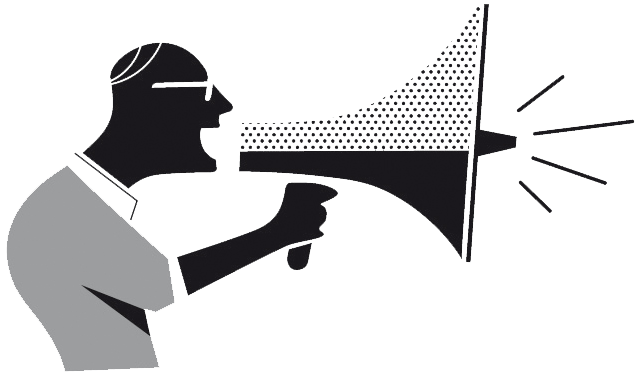Magnet
– verktyget för att skapa seminarier, föreläsningar och seminarieverksamhet
Du förbinder dig inte till någonting. Inga kortuppgifter behövs. Endast två steg för att skapa kontot. Det är allt, mycket nöje!

Event Guide – Checklist with Tips
This event guide features a checklist with tips for all stages of organizing an event.
Planning and preparation for the event
Every event is unique so some of the points below may not apply to yours. But, feel free to ponder them all before you take action. Maybe you’re thinking that an internal corporate event is just a matter of sending invitations, but won’t such an event be more successful with clear communication and appealing messages beforehand?
Planning and preparation for the event
Identify the purpose
First of all, ask yourself why you should organize the event, and summarize the goal. Before you start planning work for an event, ensure that you have formulated a clear purpose.
For example, the purpose of a company event may be to sell more products, acquire more customers, or build a brand or network. Set KPIs (Key Performance Indicators) to measure performance and optimize the event from the start.
Explore your audience
Identifying your target audience goes hand-in-hand with your event’s purpose. Define your audience and find out as much about it as possible. Design your event specifically for your target audience!
Position the event
Positioning the event is crucial for ticket sales. In most cases, the event is about you communicating something—and for this communication to be clear, the message must be well thought out. Start from your brand, the promises it contains and associated tone.
Determining the theme of the event is the first step as it will inform the entire design. Offer something unique and ensure that your event stands out, inspires, arouses curiosity, and differs from other events taking place—especially those arranged in the same time period.
What value does your event offer to the guest? Is it knowledge, pure entertainment, or something else? Be sure to convey the value in the invitation—it will greatly facilitate the decision-making process for your potential guests.
Develop an operational plan
If you feel clear about the purpose, it is time to start planning both the operational and the strategic pieces. An operational plan should include how, when, and by whom everything should be done and it should be revised and adapted continuously during the journey; it will ensure that you drive things forward efficiently as the event approaches.
From the beginning, decide who is involved and their roles. Designate the person ultimately responsible to communicate with those responsible for each area, who in turn distribute tasks within each team. Make sure you cover all the areas and hand out the tasks early. Be empathetic and ensure everyone’s planning is in line with the overall theme.
Appoint a contact person
It is important to appoint a person whom guests or participants can contact with questions, both before, during, and after the event. It should be a person who has overall knowledge of the whole event and not just at one level of detail. Contact persons must also be fully informed of who is responsible for what, in order to be able to forward the questions to the right person, when needed.
Make it entertaining
Never forget that participants in your audience are people, and people come to be entertained. Create fun elements for your event. Think photo booths or treasure hunts. Gamify the exhibition floor. Elements like these provide people with an icebreaker to start talking to others, and helps create a fun, interactive atmosphere.
Book audience attractions
To draw an audience with the help of audience attractions, you should aim high, within your budget of course. Think about the type of speaker or artist who would appeal to your target audience the most. If you are arranging a business conference, which themes are most relevant now, and who are the most attractive lecturers available to speak based on the current topic?
Create the programme
Once you have booked the main speaker or artist, it is time to decide how the program should look. The best times should, of course, be reserved for your audience attractions, but you can have additional panel debates and other program items. To manage the whole, you need to put together a program that keeps the participants’ interests up. Remember to provide space for breaks and time for socializing when people have the opportunity to interact with others.
Arrange sponsors
Decide how you want to work with sponsors. Are you going to offer sponsorship for a featured event like a cocktail mingle at your conference? Or will you have a trade show floor where sponsors can pay to demonstrate their products and services? Think about what would be appropriate for your event and start courting potential sponsors who can help fund the entire creation.
TIP: How to get a sponsor for your event
Select a date
Don’t just pick a date at random. Avoid days when people tend to be away. Take the target audience into account and ensure that these people generally have the opportunity to attend. If you are going to hold a business conference, you should coordinate with the competition to ensure that potential sponsors and participants will not be at a competing event.
Find a venue
The venue is an important factor, so choose the place for the big day with care. Be as realistic as possible about the venue. It must not be too small or large for your particular event.
Book dates and directly settle the cost well in advance, so you know how much you need to charge for the tickets.
TIP: Choose the perfect event venue
Secure permits
Depending on the size of the event, there may be different permit requirements. Check this out in time, and act when needed. Do the fire code regulations for the room accommodate your expected number of participants? Do you have to get permission from the local authorities? Is a police permit required? Do you need to address traffic flow outside the premises? What is permitted?
Develop a timetable
The timetable must state who is responsible for what, and when and how they are to carry it out. The schedule should include all time indications, but remember that they will most likely not align perfectly—be prepared to make adjustments.
Expect problems
Before it’s time for your event, go through possible problems and complications that may occur, and decide how these should be handled. For example, have the number to the nearest pizzeria handy if more guests show up than planned and refreshments run out.
Get signage in place
Arrange the signage to the room in good time. Feel free to ask someone to attempt to follow the signage to ensure that it works.
Arrange food & drinks
Book early and choose a caterer you know is reliable and can be flexible in terms of times. The food must not be a letdown that everyone talks about afterwards. Remember that catering businesses are often booked far in advance (especially the reliable ones).
Ensure that alternative dishes, such as vegan and gluten-free, are as good as the regular dishes. When it comes to drinks, you need to see that non-alcoholic alternatives are on offer, preferably ones that feel lavish and special.
Prepare a good presentation
How should the event begin? It often opens with some form of presentation. Prepare interesting and relevant content, and keep the length reasonable with just enough information for the moment and time.
TIP: How to plan & carry out a good presentation at your event
Run a dress rehearsal
Several days before the event, convene everyone involved to run through an overview of the day, and try to follow your schedule. Throughout this rehearsal, you should be aware that times may change on the actual day. Be ready to initiate a “plan B” if times do not hold. Let everyone have their say on what they think works well or badly. Then, adjust the schedule and / or individual sections that work better.

Marketing & Communications Before the Event
Develop programs
Event participants usually want a program to follow. They want to know the times for individual parts. Make a program with the most important points. Of course, this should not be as detailed as the internal planning schedule, but actually highlight the main itinerary. Remember that the times you enter there are important to keep. This program may accompany the invitation you send out.
Send out the invitation
Make sure to send out your invitation in plenty of time to allow as many of the invited guests as possible to attend the event. Two months before is often reasonable. Make it audience-oriented and appealing, and ensure you clearly communicate the place, time, what is on offer, and contact information. Include short directions or a map in your invitation. We can also include the GPS coordinates, since so many people depend on directions, maps and signs.
In addition, you should make sure that the invitation informs guests up-front what is expected of them. How much does it cost, and what is included in the price? Is there a dress code to follow? Should they prepare a presentation about themselves or their company? Include everything that makes it easier for the guest.
TIP: An inviting invitation to your event
Send a reminder
Send out at least one reminder after the initial invitation. It should not be identical to the original invitation—receiving the same email again and again will annoy and tire out the recipient. It is better to spend some time on the reminder and make it welcoming.
Develop a marketing plan
Marketing is the key to getting people to attend your event. Think multi-channel to maximize the audience.
Write an email and spread it to people in your network who might be interested. Encourage them to share with friends.
Social media is the key to participant engagement. Create accounts in relevant channels and update them regularly. Create a hashtag for your event and talk about it. Use these tags to encourage attendees to share photos and updates about the event. Make sure that your audience attractions push for your event on their accounts, and use the current hashtag. Push the event weekly with discussion topics and ideas for a continuous discussion that creates interest and a bit of hype.
Turn to the press. Target journalists, bloggers and radio personalities who you think might be interested in your event. Send them entrance passes to encourage live reporting from the event. You can also see that speakers are available for interviews before the event, so that early media reporting can help spread the message.
Sell tickets
When you have spent time and energy creating your event, you have to ask yourself if it is easy and convenient to sign up and buy tickets? Make ticket purchases easily available on your site. Remember to make your events as visually appealing as possible. Think about what feeling you want to convey with the event, if there are any special speakers, artists or musicians that you want to draw attention to. Feel free to do this via a combination of text, photographs and videos. Create a page where visitors want to stay and where it is easy to navigate to a purchase.
Speed up the decision-making process with the help of time-limited offers. Offer discounts that drive the customer to decide faster. Take advantage of Early Bird prices for customers who book a month in advance, “two for one” for a limited time and other discounts with time limits. Another way to speed up the decision-making process is to offer lower prices for those who order a number of tickets.
If you are also going to sell tickets at the door, you must inform people about this when the event is approaching, to encourage latecomers to show up.

Event Execution
Serve food and drinks at the right time
Food and drink are an important part of the overall experience. Guests should not have to wait too long for it to arrive. Make sure you serve the food at the times you have specified in the program and also keep track of how the drinks are served.
Make sure to communicate within the team
During the event, it is important that the communication channels between all those responsible are open. In larger contexts, radio communication (like walkie-talkies) can be very flexible. In smaller contexts, you can meet at set times during the event to make sure that everything flows as it should.
Pay attention to all visitors
This is a difficult point, because you and your team will probably be occupied and focused on everything flowing. But do not get caught up in the bustle without finding opportunities to unwind. Take time to speak calmly and diplomatically with all visitors and be careful to make eye contact. Make every person feel seen and welcomed. You will gain a lot from that!
Encourage participant engagement
Encourage both online and in-person conversations during the event and afterwards to keep participants engaged.

Follow-up After the Event
Thank you and please come back
Continue to pay attention to the participants, even after the event. Send them a card thanking them for their participation, or invite them back to the same event next year. Anything that makes them feel appreciated.
Gather participant feedback
The visitors are best to turn to, to find out what went well and what went less well with your event. Send follow-up emails and ask for feedback. Develop a survey that is quick and easy to answer. By taking the pulse of your event immediately afterwards, you can get fresh and insightful views on how to carry out your next event.
Evaluate the event
Review all the moments above—planning and preparation, marketing and implementation.
In addition to participant feedback, you should collect reflections from the team, as well as participating speakers or artists. Also look at statistics from your marketing activities and ticket sales. The best way to find out how it went is by measuring the result. This way, it will be easier to make the right decisions and tailor the next event to be even more successful.
**************
On our site, here in the blog and our newsletter, you will find plenty of tips on event management and event marketing, and email marketing. For example, read How to Make Your Event stand out in the Crowd.
Try Magnet for free!
You do not commit to anything.
No credit card details required.

Worth reading from our blog

The right props for your event
Getting the right adornments and equipment for your event can be difficult. First and foremost, everything should fit in with any themes and with the design, and secondly, it should of course be appreciated by the guests. Subsequently, coming up with a shopping list for all the props to be purchased is a challenge in itself. Here we resolve some of your concerns with 3 tips on how you can think about props and theming for your event. Of course, you manage your planning by creating a free account in the event tool, Magnet.

15 tips on how to make a really good presentation at your event
When you hold a business event, you usually make some kind of presentation. We have put together a few tricks for how you can succeed and perhaps relieve a little of the stress that can arise. Planning and preparation are key.

What is an event, really?
You have probably found this text because you are thinking of arranging an event of some kind. In that case, your marketing strategy is on the right track. Events are a rapidly growing form of communication and their emergence is perhaps a reaction to all the passive information flows, where the range of choice of media channels is immeasurably large. An event has greater potential to capture the target group’s attention than any other form of marketing today.